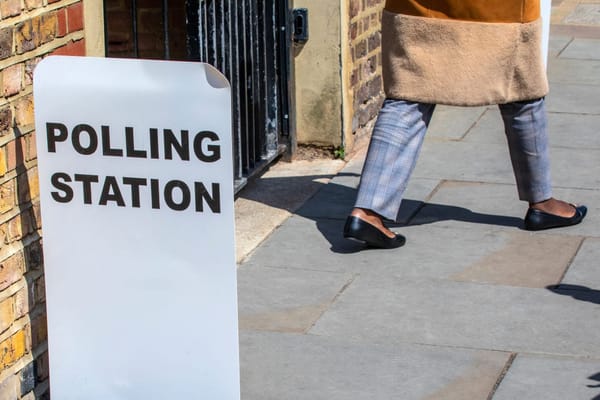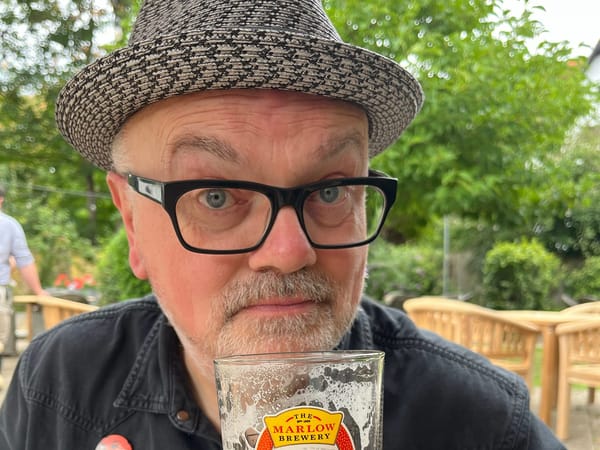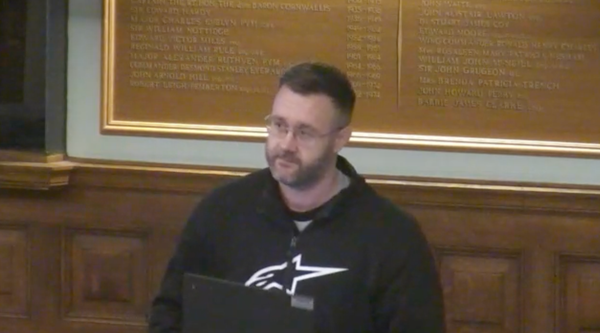“Sourdough cultures will sour beer”
What we asked Pete Nelson, Head Brewer at Docker Bakery
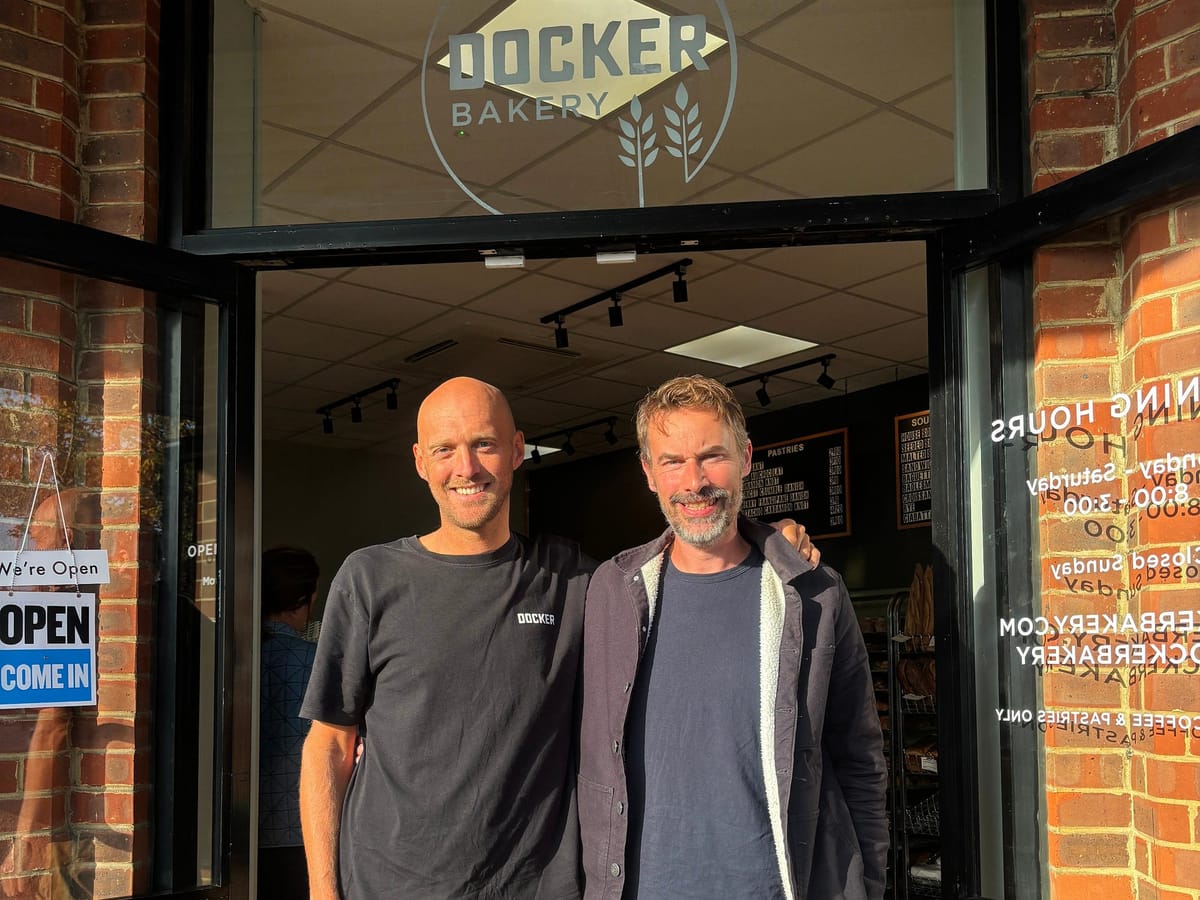
Docker is a Folkestone-based brewery and bakery. Steven talks to Head Brewer and Director Pete Nelson to talk about how he got into brewing, why they opened a new bakery in Ashford, and his advice for new brewers.
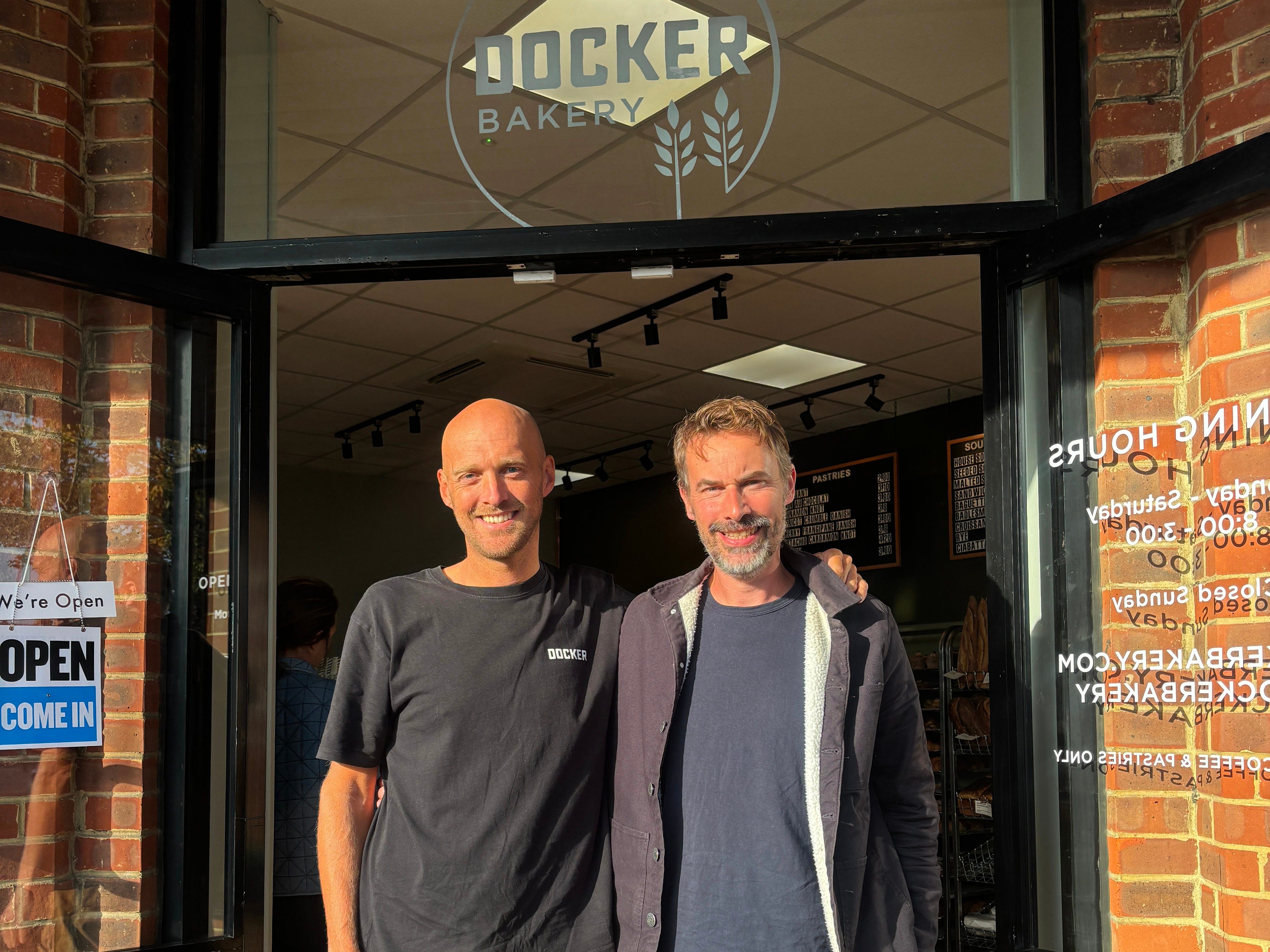
What is your official occupation?
Well, it’s officially Head Brewer, but also Director of the bakery as well.
Do you have any other additional roles, paid or unpaid?
I sometimes do some computer programming, but that’s about it.
Docker is a brewery and a bakery. Is one your focus and the other your business partner, Wesley Burden?
We own the two businesses: they’re two separate businesses. Yeah, I would say that his main focus is the bakery. But then we work together on the strategy and the overall strategy of both businesses.
How did you and Wesley meet?
He had a design company in Sandgate, and I was working at home. I wanted to work in an office so I could see other people occasionally. This is in about 2012. They had a hot-desking set up in their studio. I got a desk in there and was working there for a few years. Then we got interested in doing something that wasn’t computer-based. He had done a course at, I think it was E5 Bake House in London, on sourdough bread, and we’d both been learning about home brewing. We wanted to expand it from a hobby, because we enjoyed those things. We were given the opportunity to do that because at the time, the harbour was quite a derelict wasteland. Diane Dever, who was running the Harbour Arm, let us a shipping container on that wasteland. Very cheap cost, so we could get the business going and see if we could make it work.
Do you remember the moment when you thought Docker was your main thing?
That was very much a weekend side project to that point. For a while, we sold to people who came down to the harbour, and then we got the opportunity to speak to Rocksalt, which was the fancy restaurant in Folkestone. They were up for taking the bread. That was a big milestone, and it felt like that was our first proper wholesale customer.
Out of that container, were you doing the brewery and the bakery?
Yeah, initially we were. It was a total bare shell container with no drainage. But it did have three-phase electrics, and we’d bought an oven off eBay and some brew kit off eBay and just set it up in there. But sourdough cultures will sour beer. We discovered that fairly quickly. I had to put the fermenters in a little shed outside, so they didn’t get soured. We started to struggle for space. We asked the harbour about a double container setup, and that was the next stage we went on to. That was as the station was being developed, and the whole site was being developed. It was a real changing environment, away from a wasteland into more like what it is today.
Other than sourdough culture souring your beer, what was the biggest learning curve in becoming a master brewer?
Oh, there are so many things that can go wrong in both processes. But with bread, we will find out almost immediately. With beer, might not find out for two weeks that something’s gone wrong. Yeah, there was a big learning curve. We’re still learning today, but it gets easier as time goes on.
What came first outside of the containers, having your first bakery or having the first tap room?
Well, we moved during covid. We had that set up there for maybe four years, slowly growing, split into two sections, but within the container still. Then during covid, it was very much down to lone working because we didn’t want to have people in the same container together. At that point, we realised that containers weren’t the future of how you could expand the business because you can’t just keep working in that environment. We decided to move to an industrial estate, and that’s when we moved down to West Hythe, where unit one is, with first the bakery and then the brewery in a separate unit down there. That was the first time with the bakery that we had a real, proper, dedicated space. We’ve always been selling out the door with both bread and beer. But we started to want to grow and have space to do it.
When did it become full-time for you?
It was probably around that time, early 2021. It’s taking up too much time and effort. You realise that if you don’t dedicate the time to something, then it won’t reach its full potential. We went at it full time at that point, and that’s when we started to grow, and more staff and things like that.

